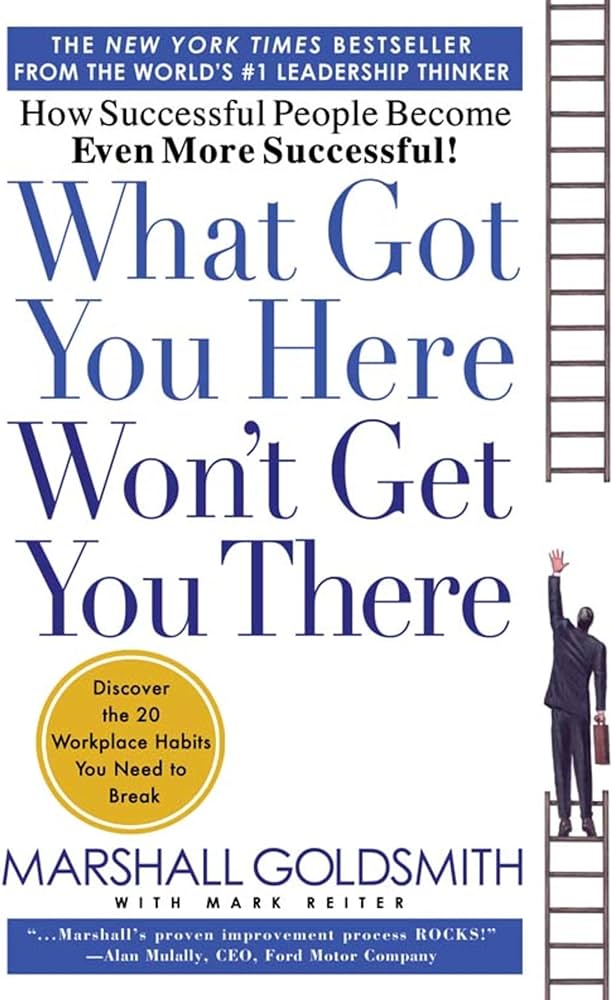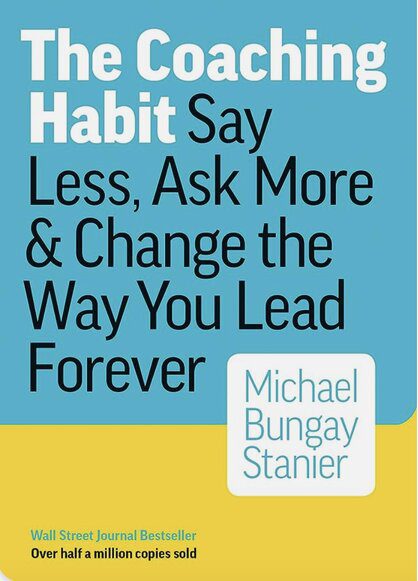It took me a while to put a name to it, but I am getting close to a vocabulary for this phenomenon, as a placeholder would call it, “Adding too much value” syndrome. I have always suspected that I see too much good in people. I am always trying to share the great tools that have worked for me, like reading, exercise, meditation, personal growth mindset and lifelong learning. However, the more I shared, the more I realized I needed to understand my audience before I started sharing. We are all at different stages in our personal development consciousness.
I have developed some very great habits that I am very proud of, such as my self-discipline, meditation practice, daily exercise regimen, daily podcast listening and language-learning adventures. These practices and challenges have taught me more about myself than in my two decades of formal schooling. Because of this, I am always eager to share and help people become a better version of themselves. In What Got You Here Will Not Get You There, executive coach Marshall Goldsmith shared 20 habits that could hinder further success. One of the habits highlighted is the “Adding too much value” syndrome. When I read about it, it seemed like something I constantly do and I need to work on.

Adding too much value is habit number two of twenty success-hindering habits shared by executive coach Marshall Goldsmith in his book, What Got You Here Won’t Get You There: How Successful People Become Even More Successful! He writes.
“ It’s common among leaders used to running the show. They still retain remnants of the top-down management style where their job was to tell everyone what to do. These leaders are smart enough to realize that the world has changed and that most of their subordinates know more in specific areas than they ever will. But old habits die hard. It is extremely difficult for successful people to listen to other people tell them something that they already know without communicating somehow that (a) “we already knew that” and (b) “we know a better way.”
The fallacy of added value. Whatever we gain in the form of a better idea is lost many times over in our employees’ diminished commitment to the concept. That’s how pernicious the need to win can be. Even when we know better, we fall into its clutches. The higher up you go in the organization, the more you need to make other people winners and not make it about winning yourself. For bosses, this means closely monitoring how you hand out encouragement.
Before you speak, take a breath and ask yourself if what you’re about to say is worth it.
To deal with the “Adding too much value” situation, I am trying to be more curious, listen more and try first to understand before I am understood. Another habit I am also trying to inculcate is the coaching habit proposed by author Michael Bungay Stanier in his book, The Coaching Habit: Say Less, Ask More & Change the Way You Lead Forever.

The real secret sauce here is building a habit of curiosity. The change of behaviour that’s going to serve you most powerfully is simply this: a little less advice, a little more curiosity. Find your own questions, find your own voice. And above all, build your own coaching habit.
Stanier noted that we are prone to giving advice and could be more effective in influencing people by asking more thoughtful questions. He writes about the advice monster:
We’ve all got a deeply ingrained habit of slipping into the advice-giver/expert/answer-it/solve-it/fix-it mode. That’s no surprise, of course. When you take the premium that your organization places on answers and certainty, then blend in the increased sense of overwhelm and uncertainty and anxiety that many of us feel as our jobs and lives become more complex, and then realize that our brains are wired to have a strong preference for clarity and certainty, it’s no wonder that we like to give advice. Even if it’s the wrong advice—and it often is—giving it feels more comfortable than the ambiguity of asking a question.
Tell less and ask more. Your advice is not as good As you think it is.
He suggests asking questions such as “What’s on Your Mind?, “And What Else? “What Do You Want?”, “How Can I Help?” and “What Was Most Useful for You?” among other questions. I have come to discover that people change at their own pace when they are ready; in the words of author John C. Maxwell, “People change when they … Hurt enough that they have to, Learn enough that they want to, and Receive enough that they are able to.”
“People change when they … Hurt enough that they have to, Learn enough that they want to, and Receive enough that they are able to.”
Meditations
Daily Calm with Tamara Levitt -Aversion
At its core, aversion is the feeling of resistance; when our needs and expectations go unmet, we resist our reality, creating upset and suffering. We feel an inner opposition to people and situations we don’t like, sometimes avoiding or pushing them away. It is caused by having attachments when people don’t behave the way we want or circumstances don’t unfold how we’d like; it is not the external world that causes our suffering; it is our attachment to things being the same way.
Acceptance means acknowledging what we are experiencing is happening whether we like it or not.
“You know quite well, deep within you, that there is only a single magic, a single power, a single salvation…and that is called loving. Well, then, love your suffering. Do not resist it, do not flee from it. It is your aversion that hurts, nothing else.― Hermann Hesse
Daily Jay with Jay Shetty – No Prescribed Path
The perfect path isn’t found; it is made. On your journey, don’t be too precious about opportunities; instead, be open to what comes and bring your authentic self to every chance.
Daily Trip with Jeff Warren – The Shimmer
Podcast
- Eric Weinstein – Why Does The Modern World Make No Sense?
All the best in your quest to get better. Don’t Settle: Live with Passion.



Comments are closed.